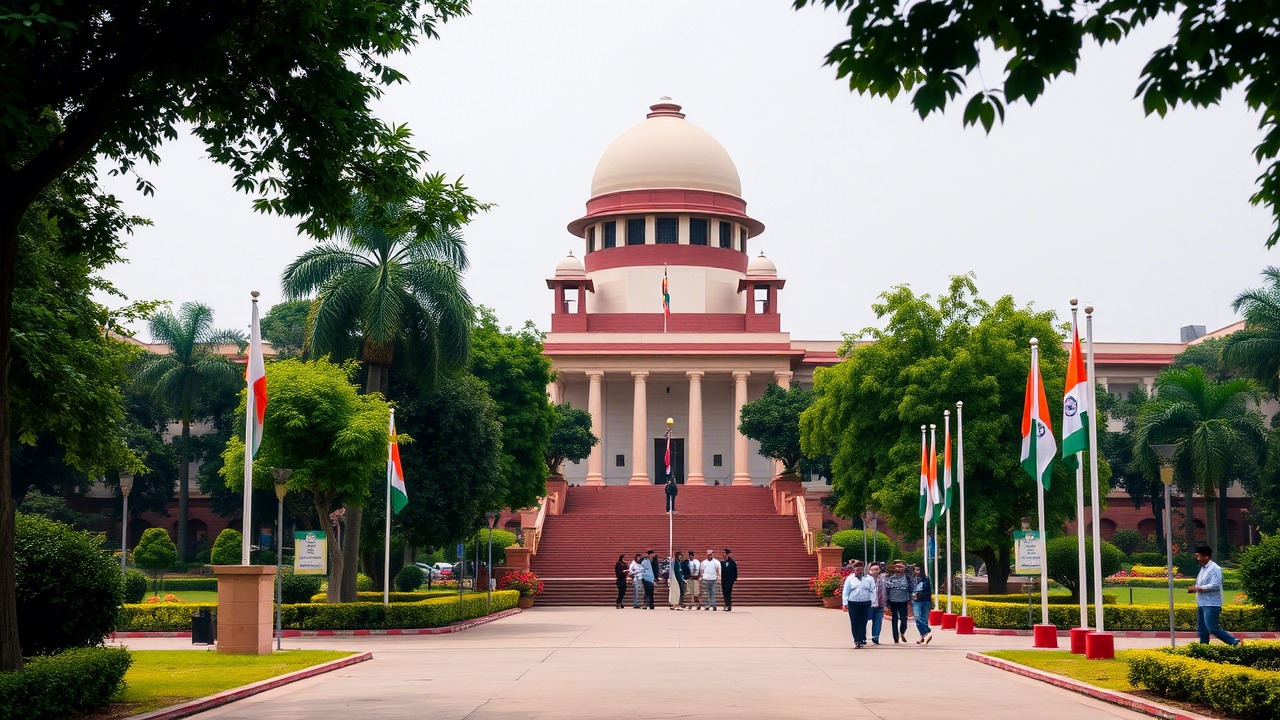So, What’s the Buzz About the Waqf Act?
Alright, let’s not sugarcoat it—the new Waqf (Amendment) Act, 2025 has set off alarm bells across the country. And no, it’s not just another bureaucratic change buried in some dusty government file. This one? It hits faith, identity, and land—three of the most sensitive nerves in any democracy.
Now, if you’re wondering “Wait, what’s Waqf again?”, don’t worry—you’re not alone. Think of waqf as an Islamic form of a charitable trust, where properties or assets are permanently dedicated for religious or social good. It could be a mosque, a school, a graveyard, or even a small shop whose rent funds a madrasa. Waqf has been around for centuries—deeply woven into the fabric of Muslim communities in India.

Flashback to April 17: A Supreme Court Showdown
The top court was hearing a clutch of petitions challenging the constitutional validity of the Waqf (Amendment) Act, 2025. This law, passed just weeks ago, has become the center of a fierce legal and cultural debate.
A Bench led by CJI Sanjiv Khanna made it clear—they’re watching this closely. And the Centre blinked first, promising:
- No denotification of waqf properties
- No appointments to Waqf Boards or the Central Council
- A written response before the next hearing on May 5
But What’s Got People So Worked Up?
This Act does three very controversial things:
- Allows non-Muslims to be part of Waqf Boards and the Central Waqf Council Imagine inviting someone who doesn’t share your faith to help manage your religious shrine. Now, is that inclusion or interference? Depends on who you ask.
- Scraps the “waqf-by-user” category This one's subtle but HUGE. Many informal waqfs—think small prayer areas or community-funded graves—now lose their legal shield.
- Gives the state sweeping power to change waqf land status That’s like giving the umpire the right to move the goalpost mid-match.
From Parliament to Petitions: The Political Firestorm
Here’s the thing—when the bill was passed, it wasn’t exactly a walk in the park. Sure, it cleared the Lok Sabha with a 56-vote lead. But in the Rajya Sabha, it barely made it—128 for, 95 against. That’s a razor-thin win for something this sensitive.
Critics call the move a direct assault on religious autonomy.
One petitioner argued in court:
“Waqfs are not just land assets. They are expressions of religious duty—a sacred trust passed down generations.”
On the flip side, the government is positioning the changes as a cleanup mission—to bring more transparency, inclusivity, and oversight. They point to allegations of waqf mismanagement, illegal encroachments, and opaque property deals.
Valid concerns? Absolutely. But the solution, many feel, shouldn’t come at the cost of religious rights.
Real Talk: Why This Matters More Than You Think
This isn't just a courtroom drama. It’s a litmus test of India’s constitutional soul.
Will the state overstep into religious territory? Can reform be balanced with respect for tradition? And—most importantly—how do you protect minorities without sidelining their identity?
For India’s 200-million-strong Muslim community, this isn’t just a law—it’s a question of trust. And let’s be real—when trust goes, everything else becomes noise.
What the Supreme Court Said
Here’s what went down on April 17 in bullet points:
- No denotification of waqf properties till May 5
- No new appointments to Waqf Boards or Central Waqf Council
- Centre must reply to petitions in one week
- Judges questioned key clauses around land status, religious management, and representation
FAQs:
What is a waqf?
A waqf is a permanent endowment made under Islamic law, typically for religious or charitable purposes.
Why is the Waqf Act 2025 controversial?
Because it allows non-Muslim participation, abolishes certain waqf protections, and grants the state more power over religious properties.
Is the law currently in effect?
Yes, it was notified after Presidential assent on April 5, but key actions have been paused by the Supreme Court until the next hearing.
When is the next hearing?
Mark your calendars: May 5, 2025.

